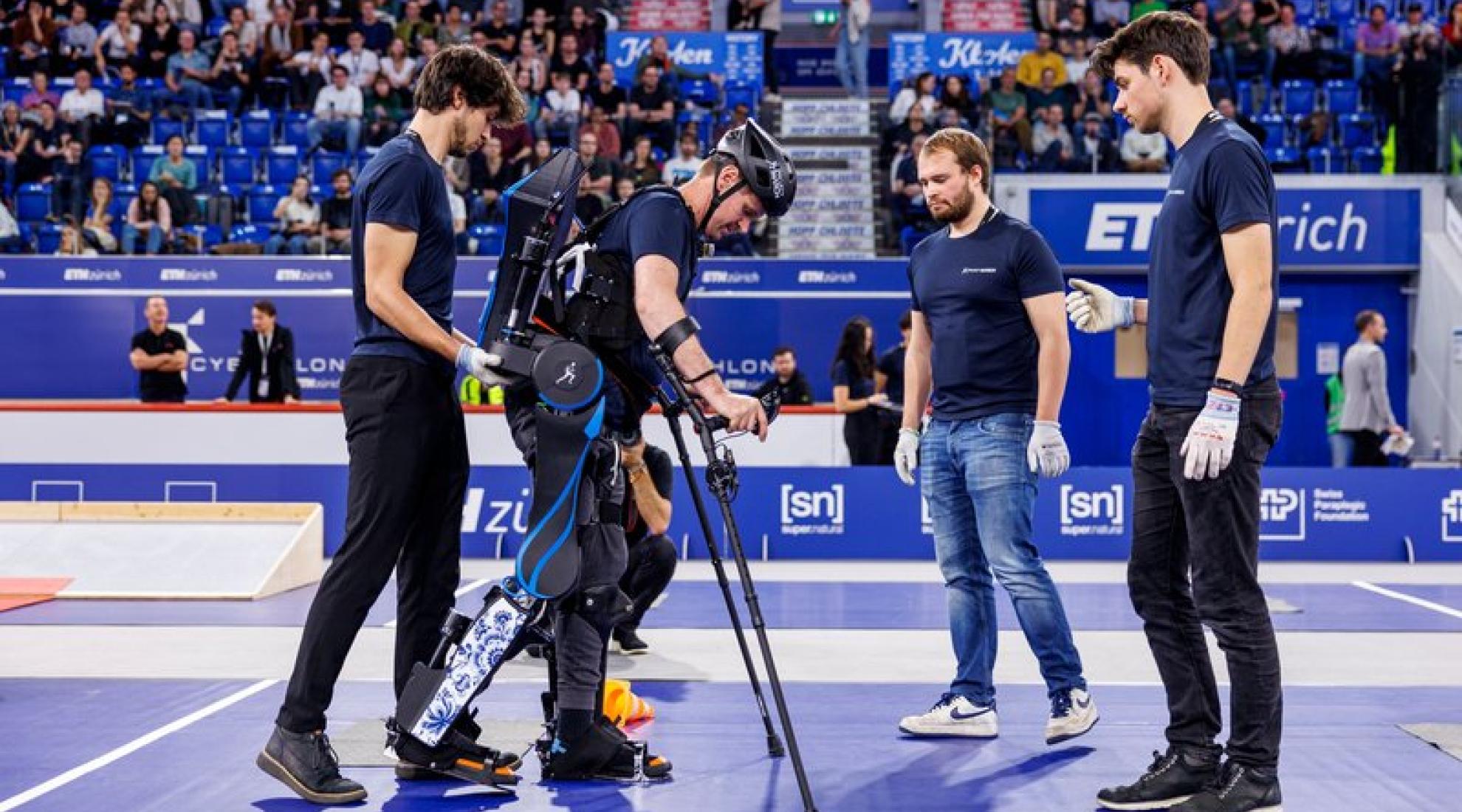Cybathlon 2024: Experimental Assistive Technologies in Competition

Robotic guide dogs, seeing-eye canes and virtual races controlled by thought: the latest assistive technologies for people with disabilities went head-to-head in the Cybathlon 2024 competition.
Just a few weeks ago, disabled athletes took centre stage at the Paralympic Games in Paris. However, it is often forgotten that people with disabilities also rely on the use of assistive technology in their everyday lives to make things a little easier. These technologies were in the spotlight last weekend at the third edition of the Cybathlon. Organised by ETH Zurich, 67 teams from 24 countries competed for fame and honour and to create more practical assistive technologies to facilitate everyday tasks.
Centre stage for assistive technologies
The Cybathlon, which ETH Zurich hosted for the first time in 2016, is a platform that challenges research teams around the world to create assistive technologies for everyday use with and for people with disabilities. Participants with physical disabilities demonstrate how to tie shoelaces with a robotic arm prosthesis, balance on rocks with a leg prosthesis, or negotiate uneven terrain with an exoskeleton.
Huge crowd and connected to the whole world
According to the press release, around 6,000 spectators cheered on the teams at the Swiss Arena near Zurich. At the same time, competitions were taking place in seven other local hubs around the world. In addition to the nine teams from Switzerland, teams from Europe, Asia and Africa travelled to Zurich for the competitions. Ten more teams joined virtually from hubs in the USA, Canada, Hungary, South Korea, Thailand and South Africa, making this a truly global event. This globally connected format was first introduced at the last edition in 2020, which was held without a physical main event due to COVID-19.
Everyday activities in competition mode
Competitors (called 'pilots') competed for the crown in eight different disciplines. The tasks in the competitions are designed to mirror everyday activities that can be challenging for people with disabilities. By completing the tasks in the competition, the global audience was able to see how well the technology developed can support the pilots in their daily lives.
This year, two additional disciplines were added to the programme for the first time: a course for vision assistive technologies and an assistance robot race:
For an overview of other disciplines, see our background article on swiss.tech from 2020.




